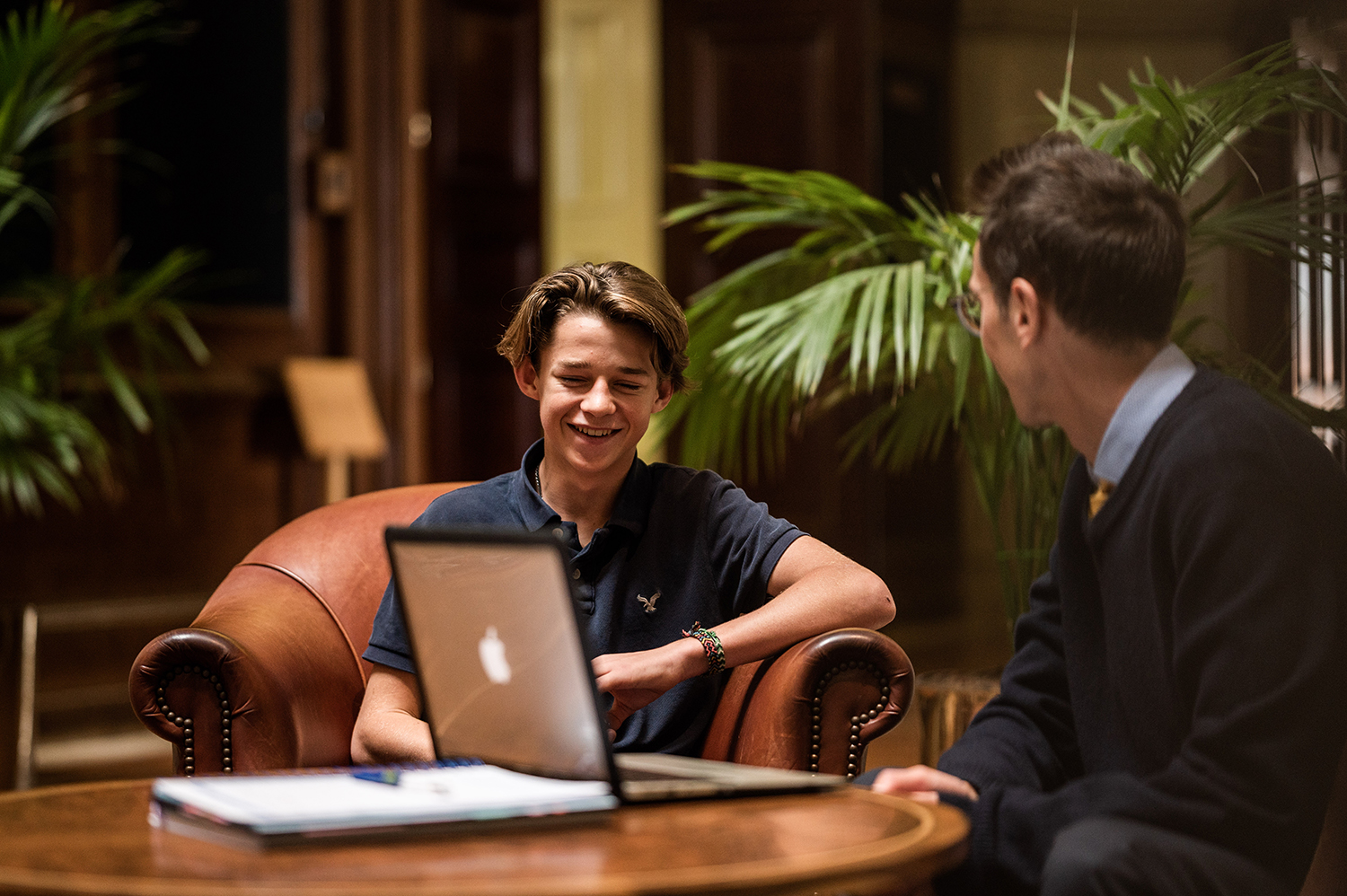We use cookies on our website and you can manage these via your browser setting at any time. See our Cookie Policy to learn more.
To review our Privacy Policy, including our obligations under the General Data Protection Regulation, please see our Privacy Policy
PARENTS: Please note that you should allow cookies in order to log into the Parent Area. Further information
At the heart of Bryanston’s approach is our distinctive method of education, the Bryanston Method. It has been the keystone of the School’s philosophy since our foundation in 1928, tailored to the needs and interests of each pupil. There is no Bryanston ‘type’ – we want our pupils to think for themselves.
Alongside high academic standards and expectations, we also provide an emotionally and intellectually supportive environment, allowing pupils to develop independent, creative, and unbounded thinking. We encourage innovation and creativity in all areas of the curriculum, believing that imagination, perspective, and boldness are as applicable in history, science, or maths as in music or art.
Pastoral care sits at the heart of everything we do, and the Pastoral and the Academic integrate through the Bryanston one-to-one tutorial system. Each pupil is carefully matched to their tutor and the relationship lasts for the duration of the pupil’s years at Bryanston.
The tutor guides each tutorial pupil in becoming responsible for their own learning and discusses their wellbeing and progress at the weekly one-to-one tutorial. They help pupils plan and manage their deadlines and priorities across the week and encourage independence. Over time, the tutor also supports them through key moments in their education, such as option choices, exams, and university applications. At all times, they act as each pupil’s champion and advocate.

Find out more about the importance of the tutor relationship.
Our goal is to send Bryanston pupils out into the world equipped with a confidence built not only upon academic qualifications, but also upon values and a raft of personal skills and qualities, as well as with an ability to contribute positively to society.
In addition to their lessons, all pupils have timetabled assignment periods during the week. At these times, they choose a study space in which to work on their tasks and where there is always a teacher supervising and available for help.
The outcomes of weekly assignments and classwork are recorded on the Bryanston Chart. Marks for attitude to learning and engagement are recorded every week in every subject: these are visible to tutors and parents. In addition, teachers’ comments can be seen on the Chart and inform part of the weekly tutorial discussion. Late work and merits are also registered on the Chart, for tutors and heads of year to monitor.
Attainment is measured using national exam specification grading in interim reports on the Chart, and then in end-of-term reports, produced by subject teachers, tutors and houseparents.
In the sixth form, pupils may choose between A levels or the IB programmes. In every subject, to support their lessons, each pupil has a weekly one-to-one or small group session to review progress and develop learning. The pupils are expected to be proactive in these sessions and bring questions, ideas, and work to discuss.
The Bryanston curriculum is deliberately broad. Distinctively, we do not operate a timetable using fixed ‘blocks’, which would force pupils to choose between subjects. Each pupil can explore their own choices at GCSE and beyond.
How does our approach benefit our pupils?
- The pupils at Bryanston are given the level of structure and support appropriate to their specific year group, be that emotional, pastoral, or academic.
- Pupils develop a creative, curious, innovative, and analytical approach. They are encouraged to ask questions and to challenge convention intelligently.
- Problem-solving and critical thinking are also encouraged in all subjects.
- Our pupils achieve impressive value-added scores and public examination results without compromising on academic ambition or breadth of experience.
- Our pupils leave Bryanston confident in their own skin, clear on what they stand for, with a strong sense of responsibility and a desire to contribute to society.
- Pupils learn to communicate confidently, sensitively, and effectively with adults and peers and to manage their time efficiently.
- Employers and former pupils (OBs) tell us that the challenges of both university and the workplace were made easier to tackle because of our emphasis on accountability, independence, and individual responsibility.
In summary: key points about the Bryanston Method
- Bryanston has high academic standards and expectations of every pupil
- The curriculum is wide-ranging – there are no rigid timetable blocks
- The bespoke 1-to-1 tutorial system is at the heart of a Bryanston education
- The e-Chart allows pupils, staff, and parents to monitor progress & engagement
- Innovation and creativity are encouraged in all subjects, be it design, maths, chemistry, or music
- The development of curiosity, independent learning and responsibility are key aspects of the approach
- There is a high level of support and structure, particularly in Year 9 in order to enable a successful transition into Bryanston
